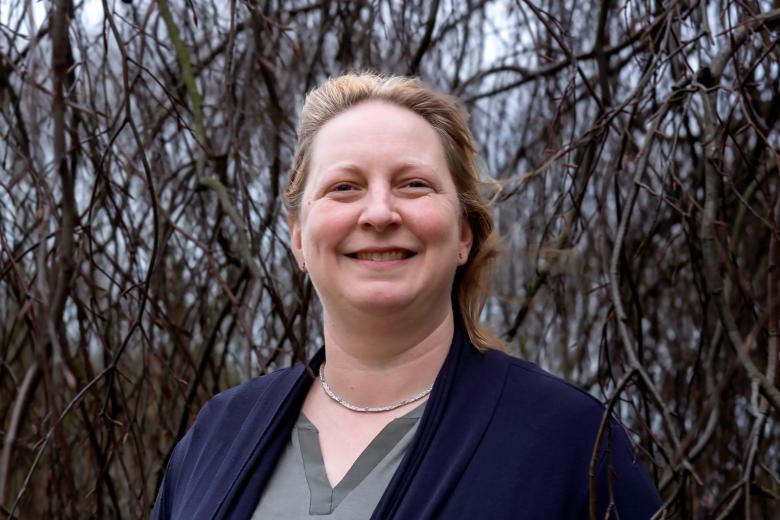How can Biden heal divisions in the US?
Take an already polarised society, add a pandemic and nationwide protests and you end up with the chaotic 2020 US elections. Studio Europa Maastricht asks Roberta Haar, Professor of Foreign Policy Analysis & Transatlantic Relations at Maastricht University, what the next president should do to heal divisions in American society and with the US’s global partners like the European Union. “I have faith in the resilience of the American system.”
Midway through our interview, Roberta Haar tells a personal anecdote about a friend, who wrote to her saying that Democrats are evil. “Evil?!”. Haar’s face shows disbelief. “Seeing your fellow Americans as evil, that’s an identity you can’t compromise on!”, she exclaims. “Having a different political opinion does not make you evil.” Directly after being declared winners, President-elect Joe Biden and Vice President-elect Kamala Harris promised to reach out beyond their base and make sure that Americans spoke to one another once again as fellow Americans.
Their task will be a daunting one. With Biden formally handed the presidency by the members of the electoral college today (December 14th), significant numbers of Americans still don’t accept that he won the election. “Trump is going to remain in the spotlight and continue to affect US politics; that’s polarising”, says Haar. “I do think that’s going to affect the Republican party. 74 million Americans voted for him. He’s like a rock star with 74 million groupies that he can somehow motivate. Republicans will want to keep those supporters.”
Similarly, the Democrats are trying to find a way to accommodate the divergent wings within their party. “There are people who are worried about divisions in the Democrat Party”, says Haar. Recently, moderate congressional Democrats and former President Obama have argued against the use of the phrase ‘defund the police’, popular among more progressive Democrats, saying it might alienate key voting groups. Haar is not too concerned: “The idea that Biden is struggling to deal with different groups is overblown. It’s Republicans trying to manufacture divisions. If there weren’t differences in opinions, policymaking would be easy.”
Rectifying the wealth gap
For Haar, it’s very clear: Biden’s first task is to focus on the 74 million who’d rather not see him in office. “Biden needs to recognise the real economic pain of Trump supporters.” To illustrate, Haar cites economic data showing that less than 500 of 3007 counties voted for Biden, but those counties make up 70% of US GDP. Put differently, those who fare well vote Democrat.
“The people that feel left behind economically voted for Trump, now and in 2016”, says Haar. “They’re mad at how Wall Street got away without punishment in 2008 and they feel the downsides of globalisation. Although globalisation generates tremendous wealth, its benefits are diffuse while its pain is concentrated in manufacturing jobs and middle class workers—those are the people who suffer from it.” First on Biden’s to do-list, if it were up to Haar: “To rectify the wealth gap and longstanding inequalities in America”.
Those inequalities are the root of the social polarisation that has marked the past four years, according to Haar. She draws parallels. “In the United Kingdom, those who voted Remain in the Brexit-referendum had seen the value of their property rise significantly in the years prior to the referendum. Those voting to Leave were those with property prices declining, and, somewhat ironically, those receiving most EU support. Similarly, in France, those in rich areas voted Macron, in poorer areas Le Pen. The similarity is that communities that are economically stressed show support for populism.”
“America’s institutions don’t need reform”
The 2020 elections, which saw President Trump spread fake news and attack democratic institutions more than America had previously seen, sparked debate about fundamental reform of American democracy. Should America’s Supreme Court and other nominations be less politicised? What about the electoral college’s functioning? “Maybe it’s a bit controversial, but I don’t think American institutions need reform”, says Haar. “America needs a grassroots, bottom-up reinstitution of social capital; Americans need to connect with one another, to build bridges and social networks.”
Her reasoning: institutions provide only a framework. “They only work when people breathe life into them”, says Haar, for instance by running for office and fulfilling other public roles. “Trump does not understand this”, Haar claims. “He wants to manipulate institutions for personal advantage and boasts about avoiding taxes. You shouldn’t try to get around taxation, you should be happy to contribute! Everything would collapse if we all saw it that way.”
Also read
-
Working at UM: “a life-changing experience”
"I am proud that our new Circular Plastics group published its first completely in-house research," Kim Ragaert says. She founded the research group three years ago, when she moved to Maastricht. Her work has laid the foundations for many innovations in the field of plastic recycling, and she is...
-
How does the universe taste?
Gerco Onderwater investigates the flavour of the universe while guarding the flavour of the Maastricht Science Programme. On 31 May, during his inaugural lecture, he provided a pre-taste of his work in Maastricht.
-
Bridging the gap between technology and clinical practice
Lee Bouwman, a vascular surgeon and endowed professor of Clinical Engineering, specialises in the implementation of groundbreaking healthcare technologies. The key to success, he says, lies in the collaboration between engineers and clinicians. This approach has already resulted in a range of...